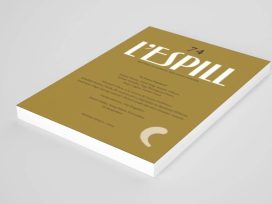
Austrian Chancellor Sebastian Kurz. Source: Flickr
The motto of the new government in Vienna is ‘Austria first!’ Although the country’s export economy means that Trump-style trade wars are not an option, rose-tinted nationalism is another matter. Meanwhile, the Freedom Party (FPÖ) led by vice-chancellor Heinz-Christian Strache clings desperately to its image as champion of the ordinary man, and the People’s Party (ÖVP) under chancellor Sebastian Kurz does its best impression of unflappable reasonableness and conservative gravitas.
Both parties, however, are finding it increasingly difficult to sustain their political brand identities. Escalating hostility from the FPÖ towards neutral political institutions like the public service broadcaster ORF makes the ÖVP’s silence look more like shock than objectivity. Nor does the thoroughly neoliberal economic policy of the ÖVP do the FPÖ any favours either. Over the last two decades, the latter has managed to market itself as the party of the national welfare state, and in last year’s elections got 60 per cent of the working-class vote. Many will now be expecting their lives to improve and their problems to be made visible.
The rightwing nationalists now have to square the circle: to hold onto their voters while consistently acting against their voters’ interests. This they do using the time-honoured nationalist bait: Heimat (home). Solidarity in the sense of redistribution, risk-sharing and social responsibility is replaced by a folksy feeling of belonging.
At the same time, the coalition has wasted no time in making welfare cuts while lowering taxes for the top-third income bracket. The first thing the government did on taking office was to abolish a measure for supporting older unemployed people. The economic upturn, so they argue, makes the project simply a waste of money. Yet older job seekers are especially affected by systematic discrimination on the labour market, regardless of the overall state of the economy, something that often leads to long-term unemployment. In addition, the government is planning to cut the budget for the publicly-run employment service, which is also responsible for unemployment benefits, by a phenomenal 30 per cent. The fallout is likely to cost Austria’s well-developed social welfare system a lot of money.
The coalition has responded to this risk by announcing that it will do away with so-called emergency benefits. These serve as a stop-gap between unemployment benefits and basic welfare benefits and allow people to claim in emergencies without having to turn over their assets to the state. Cutting emergency benefits would be equivalent to introducing Hartz IV – Germany’s punitive benefits system for the long-term unemployed – with one major difference: the limit beyond which the authorities can seize the property of the claimant would be much lower.
Finally, the government is planning to raise the legal number of daily working hours from eight to twelve. This would reduce overtime bonuses, lowering salaries significantly. In March, the ÖVP minister for the economy said that job seekers could reasonably be expected to accept work requiring a commute of up to two-and-a-half hours, particularly since social life and personal relationships anyway happen online these days. The people that these measures will primarily affect are male, Austrian and over fifty – in other words, typical FPÖ voters.
Nationalist nostalgia and residual Nazism
In order to pre-empt social protest, the far-right is increasingly using the nostalgic concept of Heimat. Indeed, they have been claiming the concept for decades. It is usually defined in relation to ‘foreigners’ or ‘the foreign’ – be it the Orient, Islam or urban modernity. Heimat thereby becomes central to a feeling of community that those at the bottom end of the socio-economic scale gratefully accept as a form of ideological compensation.
The FPÖ party manifesto describes the present as a ‘time of identity annihilation and the alienation of peoples from their roots’ and calls for a ‘strengthening of cultural identity’ through preservation of regional customs. Alongside these methods of popular appeasement, the far-right is also busy providing members of student fraternities (Burschenschaften), the seedbeds of the FPÖ’s cadres, with official posts. Seventeen of its fifty-one MPs belong to a fraternity or sorority; in the ministries controlled by the FPÖ, the picture is much the same.
A number of these fraternities have recently come under public scrutiny. One of them, the ‘Germania’, is facing charges of Nazi-revivalism brought by the FPÖ-controlled interior ministry, albeit unwillingly, after it emerged that the fraternity had been using song books containing Nazi references. One song contained the line: ‘Turn on the gas, you ancient Germans, we can finish off the seventh million.’
At that point, the moral red line which Sebastian Kurz had defined as being equivalent to the limits of the law had also been crossed for the majority of the ÖVP. When the scandal broke, the FPÖ reacted by standing behind its candidate for the regional elections in Lower Austria, who happened to be the vice president of the Germania fraternity. However, after pressure from the Austrian president and senior ÖVP politicians, it reluctantly distanced itself from him.
Is that art or can we get rid of it?
The ÖVP have also been using the far-right’s concept of Heimat and its cultural correlates. The collaboration between the two parties is reflected particularly clearly in the coalition’s cultural policy, the culmination of the demonstrative harmony between the centre and far right.
The government’s programme distinguishes between high and popular culture, understanding the first in terms of tourism, Mozart balls and the Salzburg Festival, the second in terms of local customs as a source of rightwing identity politics. The coalition particularly emphasizes the ‘productive interaction’ of the two sectors. The introduction by the ÖVP-controlled culture ministry of an ‘Austria quota’ in arts funding, together with increased support for regional culture, is clearly a condition imposed on it by the FPÖ.
A conservative ÖVP accent is nevertheless audible in a passage declaring that art should no longer be an end in itself. The watering-can principle, which in the past ensured a broad distribution of funds, must now give way to a ‘clear orientation towards results’. Financial support from the state will from now on serve ‘as a springboard for financial independence’. What survives will be what is marketable. Artistic freedom will be based on demand. This dependency on the commercial mainstream is likely to harm precisely those projects with a critical intention.
This political strategy was formulated particularly clearly by the top FPÖ candidate in Tyrol: ‘Ideological art like feminist or queer art should stop receiving funding and instead have to survive on the “open market”. On the other hand, the cultivation of tradition and Heimat, as well as folk culture and folk art of all kinds, should be funded more.’
The feminist art scene has not shied from criticizing the current situation in Austria. The feminist sorority ‘Hysteria’ put so much pressure on the organizers of the FPÖ’s ‘Academics Ball’ that this year they used facial recognition software to filter out undesirables. The year before, the feminists had mingled with the rightwing public, unfurling a large banner with the provocative slogan ‘society for the protection of males’ and successfully getting into all the papers.
Opposition coalesced in 2017 in Lower Austria, where the existing ÖVP-FPÖ government announced that it would be cutting the budget for independent cultural initiatives by a third. The argument was that the current economic upturn would soften independent art’s transition to the open market. The conservatives make no secret of their zero-deficit fantasies: low expenditure is paramount even when the economy is healthy. A strong state is not afraid of the market. Only the regional museum and the music schools were spared. This prompted a sharp response from the cultural sector. A broad alliance between art and civil society succeed in attracting media attention through various protest actions and a petition collecting over 17,000 signatures. Finding itself under significant pressure, the regional government finally reduced the budget cuts to ten per cent.
How long can the affair last?
The ‘coordinated’ funding strategy for the arts promised by the new government exemplifies its attempt to combine economically profitable commerce with politically profitable national culture. The governing parties seem to have grasped that neoliberalism and nationalism form a perfect match. The public show of harmony between ÖVP and FPÖ conceals the radical departure from the welfare-state model of the social democratic chancellor Bruno Kreisky, the Austrian chancellor from 1970 to 1983.
Yet not all is lost. Both coalition partners are faced with major challenges. Kurz must impose his will on the powerful regional governors and overcome widespread liberal-conservative distaste at the FPÖ’s Nazi ‘slip-ups’. Strache, too, is increasingly alienating his supporters. One the one hand, he unites bona fide rightwing extremists, who bitterly resent being forced to renounce Nazi ideology. On the other hand, those at the bottom of society are realizing more and more that the FPÖ is acting against their interests. According to a recent survey, two-thirds of the population do not expect their situation to improve with the new government.
While the arts sector has the resources to mobilize broad public opinion, and is therefore well armed against political attack, the traditional mouthpiece of less affluent Austrians is coming under increasing pressure. The Chamber of Labour, the body representing workers and employees anchored in the constitution, has long been the favourite whipping boy of the right. However, in addition to the routine verbal attacks, the chamber is now being threatened with financial restrictions. In response, it has loudly criticized the plans for social cuts and, together with the Trade Union Federation, is getting ready for industrial action. In parallel, a small group of indignant Christian socialists is forming under the head of the Caritas organization, Michael Landau, who openly criticizes the fact that the government is ‘forgetting the poorest’.
The growing protests give reason to hope that the Germano-nationalist nostalgia of the ÖVP and the FPÖ cannot distract from their drastic programme of austerity for much longer. However, it can only be prevented if there is solidarity across the entire opposition – both in and outside parliament – and if this also extends to those who have let themselves be blinded by rightwing identity politics. They must recognize that blood and soil is no substitute for a politics of solidarity.







